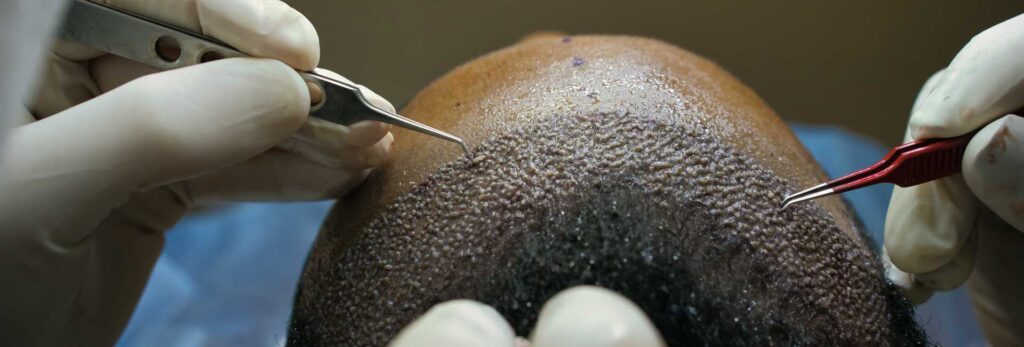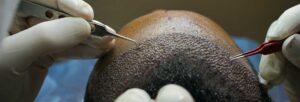
Introduction to hair transplant in Bangalore
Hair loss can be a challenging experience for many, often impacting self-esteem and confidence. For individuals in Bangalore looking for effective hair restoration options, hair transplants offer a promising solution. This comprehensive guide covers everything you need to know about hair transplants—from understanding the procedure and its benefits to exploring costs and recovery timelines. Whether you’re considering a hair transplant or just curious, this article will answer your questions and guide you through the process.
What is a Hair Transplant?
A hair transplant is a surgical procedure that involves moving hair follicles from one part of the body (typically the back or sides of the scalp, known as the “donor area”) to a balding or thinning area. This procedure is effective for treating male and female pattern baldness, restoring a fuller head of hair.
The transplanted hair is usually permanent, and the procedure provides natural-looking results. Modern hair transplant methods have advanced significantly, making it a popular choice for people seeking a lasting solution to hair loss.
Types of Hair Transplant Techniques
In Bangalore, two primary hair transplant techniques are offered:
1. Follicular Unit Extraction (FUE)
- Procedure: FUE is a minimally invasive method where individual hair follicles are extracted from the donor area using a specialized tool. These follicles are then implanted into the recipient area one by one.
- Advantages: This method has a shorter recovery time and minimal scarring since there is no need for stitches or a linear incision.
- Considerations: FUE requires high precision, and the skill of the surgeon plays a crucial role in the quality of results.
2. Follicular Unit Transplantation (FUT)
- Procedure: Also known as the “strip method,” FUT involves removing a small strip of skin from the donor area. Individual follicular units are dissected from this strip and implanted into the thinning or balding area.
- Advantages: FUT allows for a higher number of grafts in one session, making it suitable for extensive hair loss.
- Considerations: This method may leave a thin linear scar at the donor site, though it can be concealed by surrounding hair.
The Hair Transplant Process at Kkaro Clinic
Kkaro Clinic provides a step-by-step approach to hair transplants, ensuring each patient receives customized care:
Consultation:
- During the initial consultation, the surgeon assesses the patient’s hair loss pattern, overall health, and expectations. Based on this evaluation, the appropriate hair transplant technique (FUE or FUT) is recommended.
Pre-Procedure Preparation:
- Patients are given pre-surgery guidelines, such as avoiding alcohol, smoking, and specific medications, to ensure the body is prepared for the procedure.
Surgery Day:
- Local anesthesia is applied to numb the areas involved, making the procedure relatively comfortable.
- Depending on the number of grafts, the surgery can take between 4 to 8 hours.
- Patients are typically awake during the procedure and can listen to music or watch videos to relax.
Post-Procedure Care:
- After the surgery, patients receive specific care instructions for the recovery period. This includes advice on how to wash the scalp, manage any discomfort, and avoid activities that could disrupt the healing process.
- Follow-up appointments are scheduled to monitor recovery and assess hair growth progress.
Benefits of a Hair Transplant at Kkaro Clinic
Choosing a hair transplant at Kkaro Clinic offers several benefits:
- Permanent Results: Since the transplanted follicles are resistant to hair loss, results are typically long-lasting.
- Natural Appearance: The hair grows in the natural direction, blending seamlessly with the existing hair.
- Customized Treatment: Each patient receives a personalized treatment plan based on their hair loss pattern and goals.
- High Success Rate: Kkaro Clinic’s experienced surgeons use advanced techniques and tools, ensuring optimal results.
Cost of Hair Transplants in Bangalore
The cost of a hair transplant in Bangalore varies based on factors such as:
- Technique: FUE may be slightly more expensive than FUT due to the precision and time required.
- Number of Grafts: More grafts are required for larger areas of hair loss, increasing the cost.
- Clinic Reputation: Established clinics with experienced surgeons may charge higher fees due to their expertise and success rate.
Estimated Cost Range: Hair transplants in Bangalore typically range from ₹50,000 to ₹2,65,000. Kkaro Clinic provides consultations to give patients an exact cost based on their unique needs and hair loss severity.
Hair Transplant Recovery and Results
Recovery time varies depending on the technique used, but here is a general overview:
- First Few Days: The scalp may feel tender and swollen. Minor discomfort is normal and can be managed with prescribed pain relief.
- First Few Weeks: Transplanted hair may fall out—a normal part of the process called “shock loss.”
- 3–4 Months: New hair growth begins. The initial growth might be thin but thickens over time.
- 12–18 Months: Full results are typically visible within a year to 18 months, with the new hair blending naturally with the existing hair.
Choosing the Right Hair Transplant Clinic in Bangalore
Choosing the right clinic is crucial for a successful hair transplant. Consider the following:
- Surgeon’s Experience: Experienced surgeons can deliver better results with fewer complications.
- Facilities and Technology: A well-equipped clinic with advanced technology ensures quality care.
- Patient Reviews: Reading testimonials and viewing before-and-after photos helps assess the clinic’s track record.
Kkaro Clinic stands out for its team of skilled surgeons, state-of-the-art facilities, and commitment to patient satisfaction.
Frequently Asked Questions (FAQ) About Hair Transplants
1. Is Hair Transplant Permanent?
Yes, a hair transplant is generally considered permanent. The transplanted hair follicles are harvested from areas resistant to hair loss, which means they should continue to grow in their new location. However, as with natural hair, transplanted hair may thin slightly with age.
2. Can Hair Transplant Increase Hair Density?
Yes, hair transplants can improve hair density in thinning areas. While they can’t create new hair follicles, they can strategically place healthy follicles in areas where hair is sparse, providing a fuller appearance. The density achieved depends on the availability of donor hair and the patient’s specific goals.
3. Can Hair Transplant Cause Cancer?
No, there is no scientific evidence linking hair transplants to cancer. The procedure involves relocating hair follicles, which does not alter the cellular structure or cause cancer. Hair transplants are widely regarded as safe, and any risks are related to minor surgical complications rather than cancer.
4. Can Hair Transplant Be Done for Women?
Absolutely. Hair transplants are an effective option for women experiencing hair thinning or bald spots, especially if their hair loss is due to genetic factors or traction alopecia. Women may require a different approach due to distinct hair loss patterns, and a skilled surgeon can tailor the treatment to their needs.
5. Which One is Better? Hair Transplant or PRP?
- Hair Transplant: This is a surgical procedure that provides a permanent solution by relocating hair follicles.
- PRP (Platelet-Rich Plasma): This non-surgical treatment involves injecting the patient’s own plasma into the scalp to stimulate hair growth. It’s effective for slowing hair loss and improving hair quality but does not restore hair in bald areas.
In summary, hair transplants offer a more permanent solution for hair restoration, while PRP is useful as a complementary treatment or for early-stage hair thinning.
Myths vs. Facts About Hair Transplants
Myth 1: Hair transplants are only for men.
- Fact: Both men and women can benefit from hair transplants, as the procedure can be customized to address female hair loss patterns.
Myth 2: Hair transplants provide instant results.
- Fact: Full results take 12–18 months as the new hair grows and thickens over time.
Myth 3: Transplanted hair requires special care forever.
- Fact: While post-op care is essential initially, transplanted hair requires no special maintenance after recovery.

